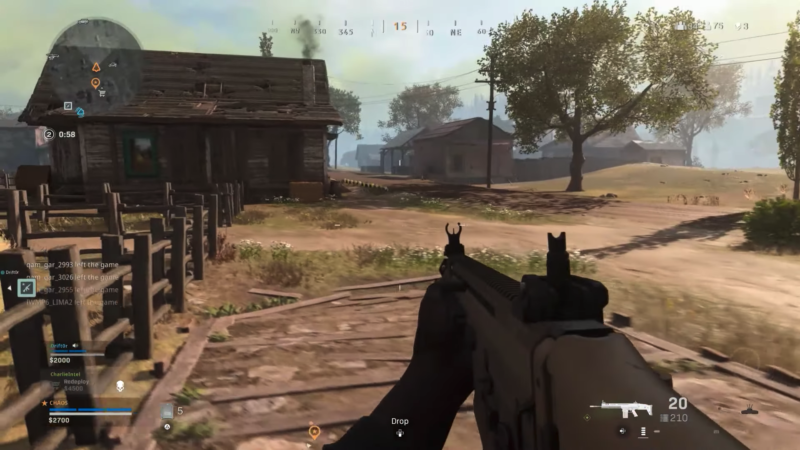Call of Duty cheaters are being struck blind by anti-cheat software

Players caught cheating in Call of Duty can now be punished with a penalty that makes them unable to see their opponents, a new anti-cheat mitigation feature that Activision calls “cloaking.”
Cheaters that are subject to a cloaking penalty will find that “characters, bullets, even sound from legitimate players will be undetectable,” according to a post on the official Call of Duty development blog. Those cheaters will remain fully visible to non-cheaters, though; Activision quips that “they’ll be the players you see spinning in circles hollering, “Who is shooting me?!'”
The latest anti-cheat update will roll out first for Call of Duty: Vanguard, then applied to the free-to-play Warzone, Activision says, “to minimize and issues players may encounter.” It also comes on top of another cheating mitigation measure, called Damage Shield, which was announced in February and “disables the cheater’s ability to inflict critical damage on other players.”
You might think that Activision would be better served just banning cheaters and booting them from a match as soon as they’re detected, rather than merely messing with their effectiveness. But Activision wrote in February that instant mitigation “leaves the cheater vulnerable to real players and allows [the anti-cheat team] to collect information about a cheater’s system.” Activision also insists that there’s “no possibility” of a false positive punishing non-cheaters with mitigation drawbacks, and that “we will never interfere in gunfights between law-abiding community members.”
After Damage Shield debuted in February, Activision said it noted “a decline in cheat reporting,” but “we know the work is never done.” The company also says it continues with “testing and deploying a variety of new mitigation and detection techniques,” some of which players haven’t noticed en masse yet.
Beyond the ban
Call of Duty‘s new cheat mitigation tools continue a long history of creative punishments for video game cheaters that go beyond mere suspensions or bans. In 2012, Rockstar Games quarantined its cheaters into a “Cheaters Pool” lobby, letting them use their exploits only against each other. Meanwhile, players caught cheating in Pokémon Go were stuck in an in-game purgatory where they could only find and catch common Pokémon like Pidgeys.
Gears of War 2 players who cheated to get in-game achievements risked having their lifetime Gamerscore set to zero across their Xbox account. More recently, Riot Games let some League of Legends cheaters back into the game during a limited two-hour livestream where they fought against developers who were also using cheats.
In November, Activision also warned that players caught repeatedly cheating in Call of Duty games risked an account-wide ban that would apply across “any past, present, and future titles in the Call of Duty franchise.” Electronic Arts rolled out an even harsher punishment on an unrepentant FIFA cheater, who in 2020 was banned from all EA games and services after “post[ing] abusive and threatening messages and videos about EA employees and competitive players on social media.”
Activision’s new anti-cheat tools build on top of Call of Duty‘s Ricochet anti-cheat system, the kernel-level driver the company used late last year. Despite the tool’s low-level access to a player’s system, Activision says that Ricochet only actively checks the user’s system when a Call of Duty game is running. Richochet can’t look at unrelated files.
https://arstechnica.com/?p=1850906